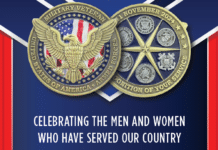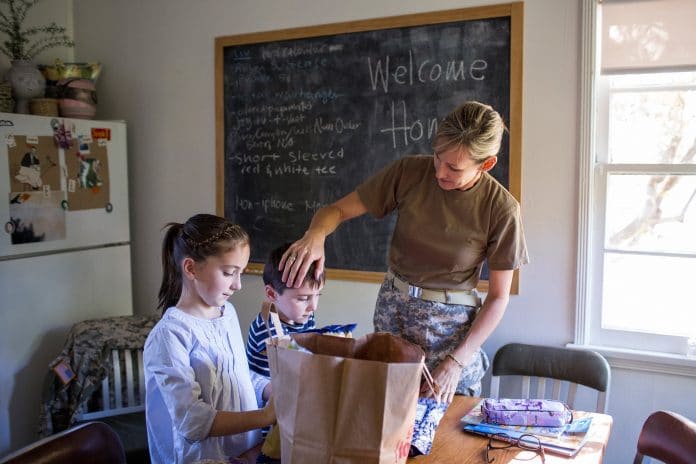After a stint in the armed forces, today’s vets face a huge number of challenges veterans have always faced and a few new ones to boot! It is never easy assimilating back to a civilian lifestyle, especially after having done time in what is considered to be a highly charged international zone or a war zone, as the case may be. Whether you were in a battle zone or stationed stateside, there is a marked difference between life in the military and life as a civilian. If you are newly discharged, here is some information you may find helpful.
1. Be Prepared to Be Misunderstood
This is a biggie for most newly discharged military men and women. The one thing you may not be ready for is the fact that civilians who have never served simply don’t understand the lifestyle of those in the armed forces. There is a great deal of structure to the life you’ve just led, a hierarchy of command you reported to and more stress than the average person can relate to.
Even soldiers who weren’t sent to volatile locations can suffer PTSD simply because stress is contagious! Civilians will often have little compassion for what you suffered simply because they have no clue. Be ready for this laissez faire attitude you will be assaulted with and it will be much easier on you to deal with.
2. Help May Not Be Readily Available
Furthermore, one of the biggest problems many vets encounter is the general lack of services available to vets. Yes, there are veteran’s hospitals, veteran’s affairs regional offices and other services offered, but there is also a lack of sufficient government funding to offer the range of services needed. It can take months to get an appointment with a doctor, for example, and sometimes that is just too far in the future for your needs.
If you find that you are unable to easily assimilate back into civilian life, it may be faster to seek social services run on a county level. This is not to say that you won’t be seen quickly, it simply means that county hospitals and clinics may be your fastest option in a crisis situation.
3. Dealing with Basic Needs – Food, Clothing and Housing
You’ve come home to the family and find that your home is in a state of disarray. Your wife kept things going but there were chores and repairs left undone until your return. Some of these repairs may even be beyond what you can accomplish, so you should know that there are companies out there that make it a priority to work with America’s veterans. For example, you find that your power bills are inordinately high and upon closer inspection it is obvious that air is seeping through old and unsealed windows and doors.
Here, it helps to find the best window replacement company that will understand your needs as a vet and will be able to offer replacement services that fit your budget, as limited as that may be. Rather than try to tackle the project yourself when you should be focusing on readjusting, it would be wise to call in the professionals. If you live in California, for example, this company may be able to help. As a family owned business with a strong understanding of the challenges today’s newly discharged military personnel face, American Vision Windows is the kind of contractor you need to deal with. This is an absolute must.
4. Going Back to Civilian Jobs
Another issue many of today’s vets encounter is returning to the workforce. You will be accustomed to answering to a commanding officer and of giving that officer the respect required of you as a service man or woman. Today’s workforce seems to have little respect for authority, and this is something you may find to be problematic for you. Don’t let this distract you.
Remember that most companies do reward a job well done and your attitude may give you the advantage over someone who has more experience. Instead of going against your values, bring your values to your new place of employment. If you are finding it difficult to find work in the field you were trained in while on active duty, don’t forget that there are amazing college loans and grants for vets, so take advantage of those wherever and whenever possible!
5. Readjustment to Family Life
In the service, there was a strict schedule for literally everything you did. From getting out of bed in the morning to meals you ate, everything was charted out for you and you were expected to comply. At home, you find that there is no real set bedtime for the kids and that meals are not taken at exact hours as you were accustomed to. Your first inclination will be to set a rigid schedule for the kids, and if you have teens, they will rebel!
Get ready for this because this is something many vets face when getting home to their family. It is suggested that you try to slowly make the changes you deem necessary and if the tension runs high, there is absolutely nothing wrong with seeking family counselling. Remember, even your spouse and children will not really understand what military life was like, so counselling may help everyone better relate to you and each other.
6. Creating a New Structure for Your Lifestyle
Taking this a step further, it’s time to define a new structure for your life. As stated, everything in the military was structured for you. From the clothes you wore to the job you did to the foods you ate, you really didn’t have as many choices as you will now be confronted with. It is important for you to take the time to structure your new civilian lifestyle accordingly. It really is possible to find a healthy balance between rigid structure and a laid-back culture you will now try to be absorbed into.
Yes, structure is good, and it is important for the kids, but to enforce it overnight can be as damaging as it is helpful. This goes for you as well as for family and friends. A get together with friends is fun and can do wonders to relieve some of the stress you are living with, but if a card game runs a little long or the ballgame you are attending goes into overtime, you don’t have a commanding officer to report to, so sit back and enjoy the night! Again, remember, you set your home schedule now, so sometimes it pays to loosen up a bit.
Back to the Drawing Board
Do you remember your first days and weeks in basic training? How difficult was it to get used to that strict schedule and chain of command? Now you will be doing what some like to think of as basic training in reverse. You will learn to take the best of what you learned in the military and temper it with civilian lifestyle. Don’t be afraid to ask for help if help is needed. From Veteran’s Affairs to local clinics, hospitals, doctors and churches, there is help out there. You are a hero and deserve a hero’s welcome, even if it isn’t easy to find.
Think about that San Diego window replacement company mentioned above and all the businesses and employers who do take an active interest in our veterans. Patriots are out there and they care. Keep that in mind and you will find the transition much easier to deal with. A heartfelt thank you for all you have done and continue to do.
All content herein is owned by author exclusively. Expressed opinions are NOT necessarily the views of VNR, authors, affiliates, advertisers, sponsors, partners, technicians, or VT Network. Some content may be satirical in nature.
All images within are full responsibility of the author and NOT VNR.
Read Full Policy Notice - Comment Policy





























